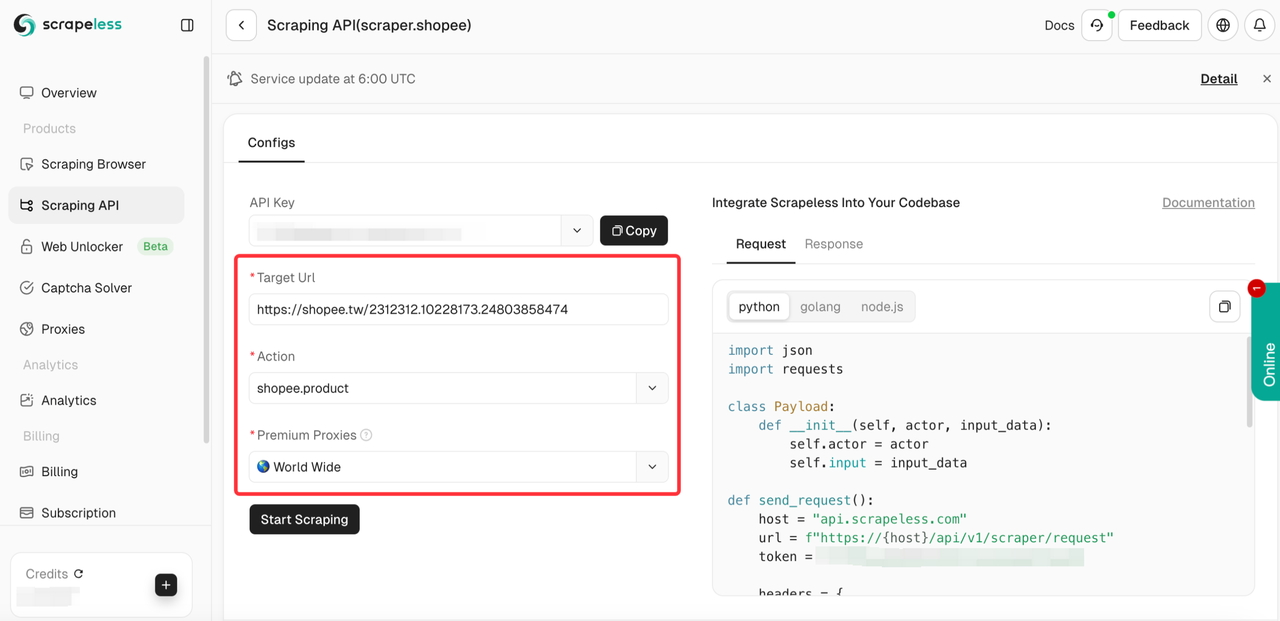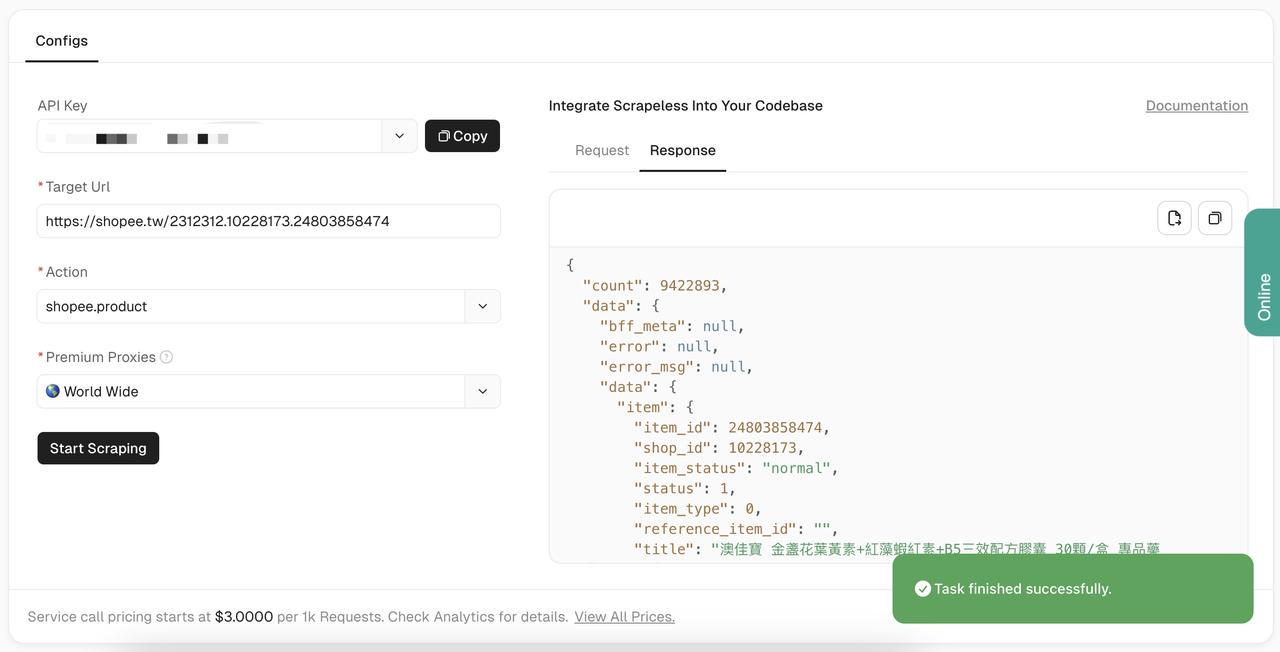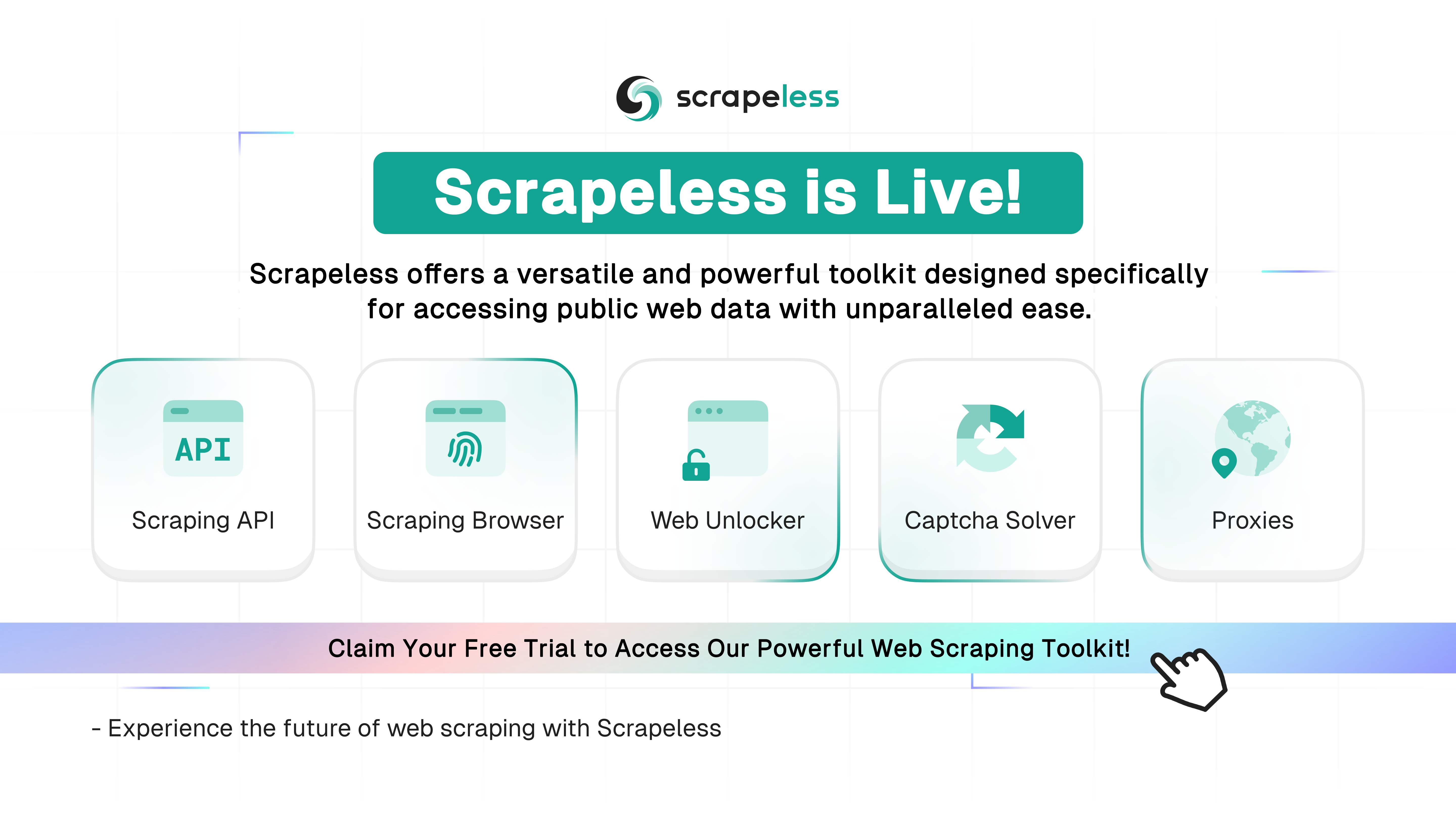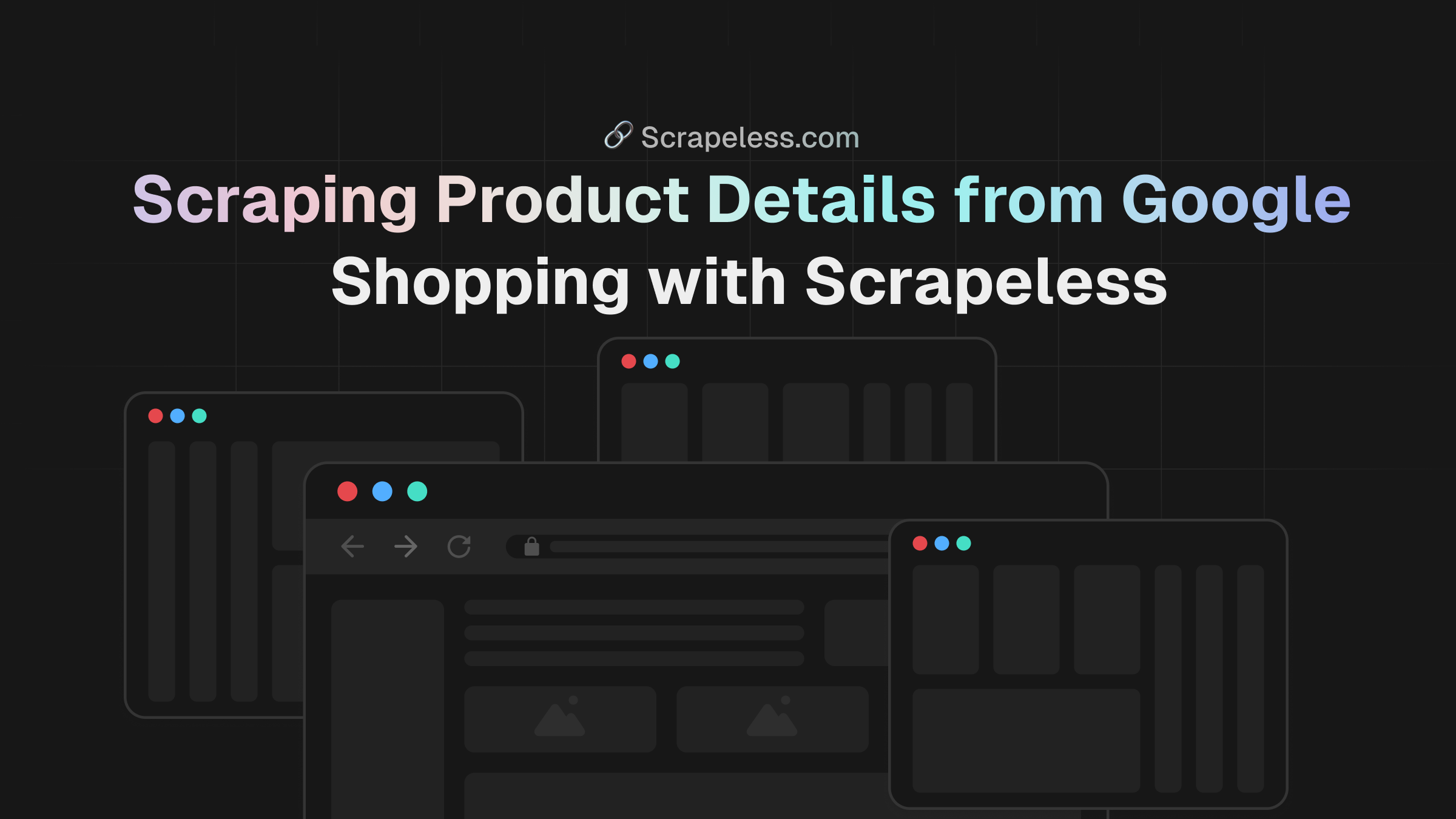Is Scraping Shopee Legal?
Advanced Data Extraction Specialist
In the digital age, web scraping has become a common practice for collecting data from various online platforms. E-commerce sites like Shopee are no exception. However, the question of whether scraping Shopee is legal is not straightforward. This article explores the legal considerations, potential consequences, and ethical implications of scraping Shopee.
Legal Considerations
Copyright and Intellectual Property Laws
Shopee hosts a vast amount of content, including product descriptions, images, and reviews. Much of this content is protected by copyright and intellectual property laws. Scraping and reproducing this content without permission may constitute infringement. For example, if you scrape product images from Shopee and use them on your e-commerce site without authorization, you could face legal action for copyright violation.
Computer Fraud and Abuse Act (CFAA)
In the United States, the Computer Fraud and Abuse Act (CFAA) is a key law that governs unauthorized access to computer systems. While the CFAA primarily targets hacking and malicious activities, it has been applied in cases involving web scraping that violates a website's terms of service or involves circumventing technical measures to access data. If scraping Shopee involves bypassing security measures or accessing restricted areas of the platform, it could potentially fall under the purview of the CFAA, leading to civil or criminal liability.
Data Privacy Laws
Shopee collects and processes significant amounts of personal data from its users, including buyers and sellers. Data privacy laws like the General Data Protection Regulation (GDPR) in the European Union and the Personal Data Protection Act (PDPA) in Singapore regulate how personal data can be collected, used, and shared. Scraping personal data from Shopee without proper authorization may violate these privacy laws, resulting in legal penalties and damage to reputation.
Shopee's Terms of Service and Robots.txt
Terms of Service
Shopee's Terms of Service explicitly prohibit unauthorized scraping activities. These terms outline the rules users must follow when interacting with the platform. By scraping Shopee in violation of these terms, you risk account termination and potential legal action. Shopee may pursue lawsuits against scrapers for breach of contract, seeking damages for any harm caused to their business operations or user experience.
Robots.txt File
The robots.txt file on Shopee's website provides directives for web crawlers and scrapers. It specifies which parts of the site can be accessed and crawled and which are off-limits. Disregarding the instructions in Shopee's robots.txt file when conducting scraping activities can be seen as a violation of the website's rules and may contribute to legal challenges against the scraper.
Technical Measures and Anti-Scraping Measures
Shopee employs various technical measures to protect its data and ensure platform stability. These include rate limiting, IP blocking, and CAPTCHA challenges. Advanced anti-scraping technologies can detect and block scrapers based on their behavior patterns and traffic characteristics. Attempting to bypass these measures can escalate the severity of legal consequences, as it demonstrates intentional disregard for Shopee's security protocols and data protection efforts.
Potential Consequences of Unauthorized Scraping
Legal Repercussions
Unauthorized scraping of Shopee can lead to a range of legal issues. You might face lawsuits alleging violations of computer fraud laws, copyright infringement, or breach of contract. These legal actions can result in significant financial damages, injunctions against further scraping activities, and in some cases, criminal charges with potential imprisonment.
Technical and Operational Impact
Beyond legal troubles, scrapers may encounter technical repercussions. Shopee can block your IP address or ban your account, preventing access to the platform. This can disrupt your scraping operations and any business activities that rely on the scraped data. Additionally, frequent scraping attempts can strain Shopee's servers, potentially affecting the performance and availability of the platform for legitimate users.
Ethical Implications and Business Impact
Impact on Shopee's Ecosystem
Scraping Shopee without permission can harm the platform's integrity and its users. Sellers on Shopee invest time and resources in creating product listings, and unauthorized scraping can undermine their competitive advantage. It can also lead to data misuse, such as price undercutting by competitors or the creation of counterfeit listings, which disrupts the marketplace's fairness and trust.
Reputation and Trust
Engaging in unauthorized scraping activities can damage your reputation as a business or individual. In today's ethical business landscape, companies are expected to operate with integrity and respect for others' intellectual property and data. Being associated with unethical scraping practices can lead to loss of customer trust, negative publicity, and long-term harm to your brand image.
How to use Scrapeless to scrape Shopee data
Step 1. Log in to Scrapeless.
Step 2. Click Scraping API, then select Shopee to enter the Shopee scraping page.
Step 3. Drop down the Action list to select the data type to scrape, and you can customize the proxy region.

Step 4. Click Start Scraping to start scraping, and the scraping results will be displayed on the right.Scrapeless only charges for successful requests.

If you need to integrate the Scrapeless Shopee Scraper API into your project, please refer to the following request code:
import requests
import json
API_KEY = "your api key"
host = "api.scrapeless.com"
url = f"https://{host}/api/v1/scraper/request"
payload = json.dumps({"actor": "scraper.shopee","input": {"action": "shopee.product","url": "https://shopee.tw/2312312.10228173.24803858474"
}
})
headers = {'Content-Type': 'application/json','x-api-token': f'{API_KEY}'
}
response = requests.request("POST", url, headers=headers, data=payload)
print(response.text)Conclusion
The legality of scraping Shopee is a complex issue influenced by various legal frameworks, platform policies, and ethical considerations. While web scraping itself is not inherently illegal, the manner in which it is conducted and the specific circumstances surrounding the scraping activities on Shopee determine its legality. It is crucial to thoroughly review Shopee's Terms of Service, robots.txt file, and applicable laws before engaging in any scraping activities.
At Scrapeless, we only access publicly available data while strictly complying with applicable laws, regulations, and website privacy policies. The content in this blog is for demonstration purposes only and does not involve any illegal or infringing activities. We make no guarantees and disclaim all liability for the use of information from this blog or third-party links. Before engaging in any scraping activities, consult your legal advisor and review the target website's terms of service or obtain the necessary permissions.



